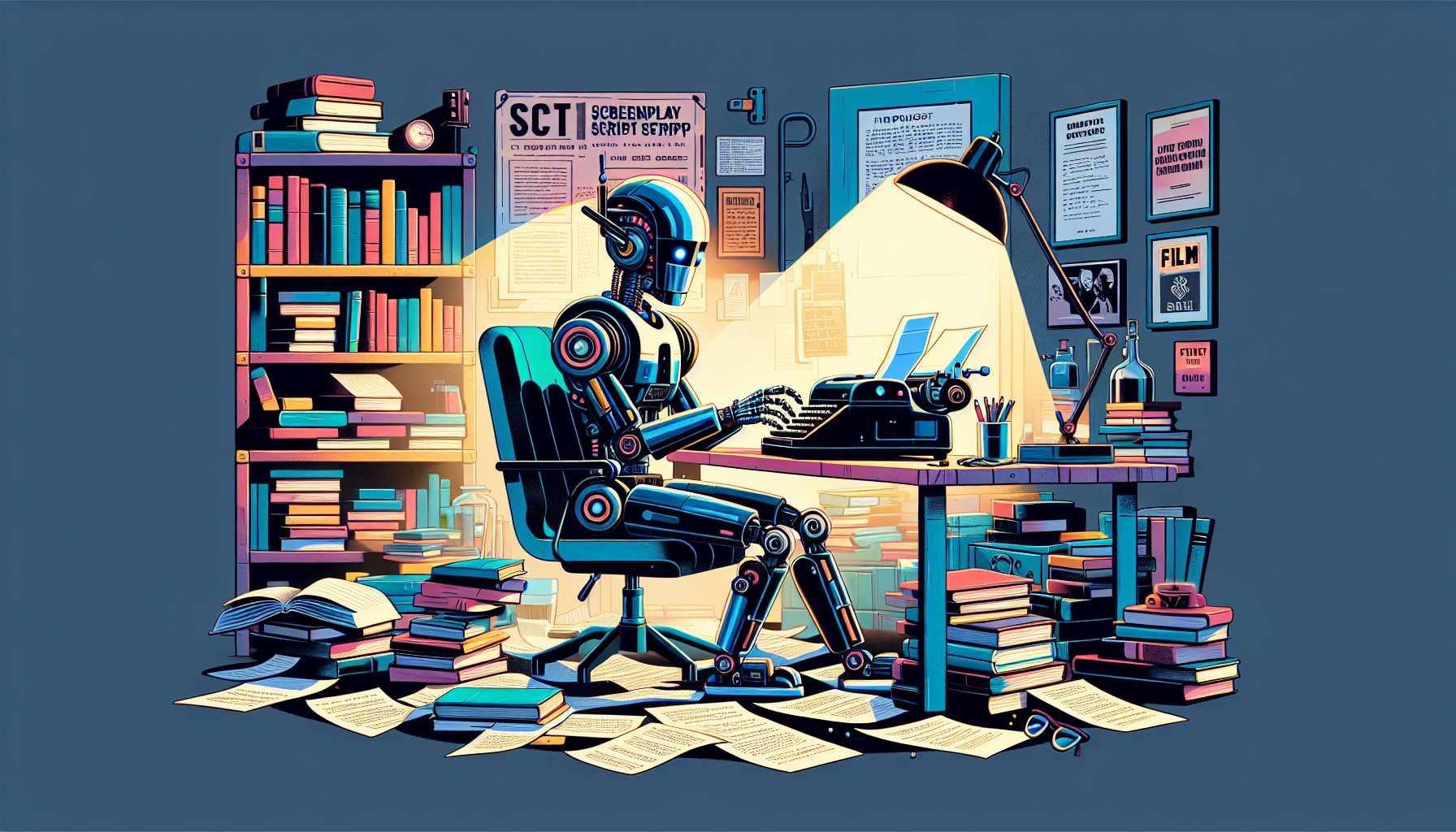
Lights, Camera, AI: The Unsung Screenwriter in the Making
Imagine the scene: a dimly lit room, a writer’s fraught face illuminated by the cold glow of a laptop screen, surrounded by crumpled pages of rejected dialogue. Lo and behold, a new hero emerges in the saga of screenwriting—not a seasoned script doctor, but a sleek, unassuming AI assistant. Yes, artificial intelligence is venturing out of its techie cave into the creative wilderness of screenwriting, and it’s not here to merely fetch virtual coffee.
The Plot Thickens: Speedy Drafts and Rewrites
Firstly, let’s tackle the elephant in the room—or rather, the robot. Speed. AI can process, analyze, and regurgitate content faster than you can say Oscar-worthy screenplay. Imagine churning out drafts and rewrites while still basking in the afterglow of your original inspiration. AI tools can help screenwriters by handling the more dreary, mechanical aspects of writing, like formatting, spelling, and grammar, freeing the human mind to soar into the realms of pure creativity. It’s like having a turbocharged typewriter that doesn’t judge your coffee consumption.
Character Arcs on Steroids: Enhanced Character Development
Developing characters that resonate with audiences can be as challenging as convincing a cat to perform a synchronized swimming routine. Here, AI can be a goldmine for depth and diversity. By analyzing databases of personality traits, backstories, and human behavior, AI can suggest nuanced character arcs and interactions that might take a human writer much longer to conceive. Want a villain with a touch of vulnerability or a hero with a dark secret? AI might just pull out intriguing complexities from its digital hat.
Plotting Like a Pro: Data-Driven Storylines
Every screenwriter knows the horror of plot holes big enough to swallow the entire credibility of their story. AI, with its capacity to absorb and compute vast amounts of data, can foresee and flag potential plot holes before they turn into script quicksand. Moreover, AI’s ability to analyze successful film patterns and audience preferences can guide screenwriters toward narrative structures and themes that have a higher chance of resonating with audiences. This doesn’t mean crafting cookie-cutter stories, but rather using data to sharpen originality, not supplant it.
Dialogue That Doesn’t Die on the Vine
Writing dialogue that crackles and pops off the page is no small feat. Enter AI, which can analyze countless scripts and books to suggest dialogue options that maintain character voice and enhance dramatic tension. This isn’t about replacing the writer’s unique voice but augmenting it with alternatives that might just elevate the conversation. Think of it as having a whip-smart dialogue partner who’s watched every film ever made—handy, right?
The Twist: Ethical Considerations and Authenticity
Now, cue the dramatic music. With great power comes great responsibility. The use of AI in creative processes isn’t without its ethical dilemmas. The reliance on AI for creative content raises questions about originality and authenticity. After all, if a script is peppered with AI suggestions, at what point does it lose its human touch? Furthermore, there’s the issue of bias—AI is only as unbiased as the data it’s fed. Screenwriters must vigilantly ensure that their AI co-writer doesn’t perpetuate stereotypes but instead enriches their narrative with diverse and inclusive perspectives.
Audience Embracing the Algorithm: The Viewer’s Experience
At the end of the day, films are for audiences. While AI can help tailor content to viewer preferences, there’s an intangible element to screenwriting that data can’t capture—call it soul, if you will. The magic of a great script lies in its ability to touch something profoundly human. So, while AI can suggest, compute, and predict, the heart of storytelling still belongs to the storyteller. Audiences crave stories that resonate on a personal and emotional level, and that’s where the human screenwriter cannot be replaced.
The fusion of AI technology in screenwriting is like adding a dash of science fiction to the art of storytelling—a cocktail of possibilities both exciting and unnerving. However, as we stand at this cinematic crossroads, the script for the future is still unwritten. How deeply AI integrates into the creative soul of filmmaking rests in the hands of those wielding this powerful tool. As for now, grab your popcorn and let’s see where this plot twist leads us!






